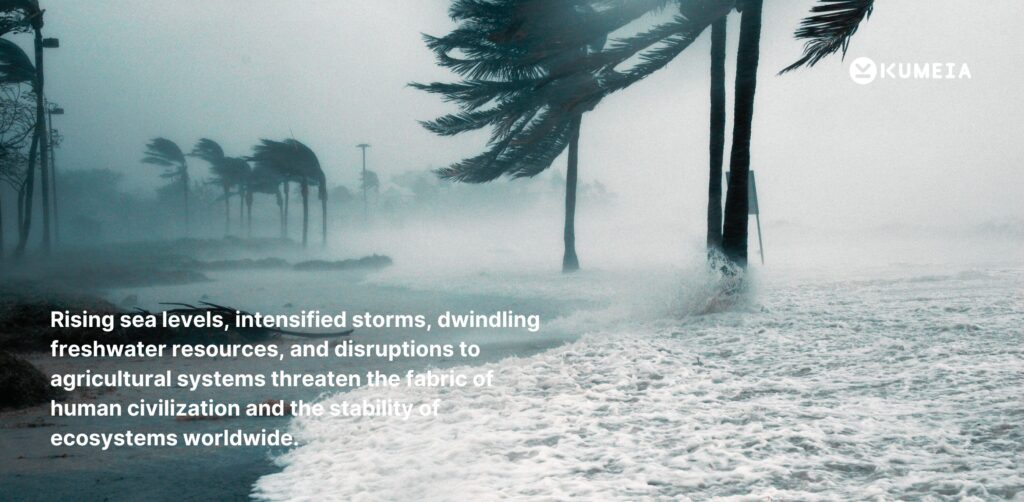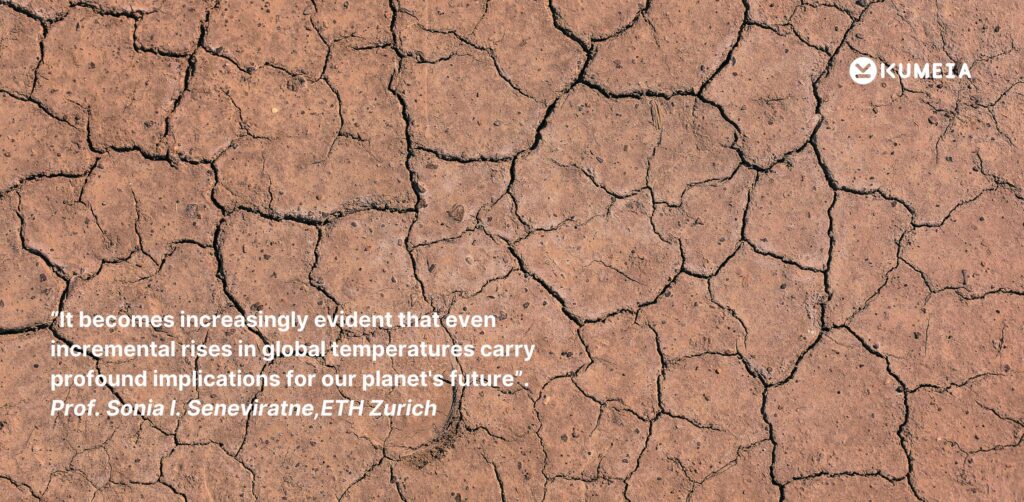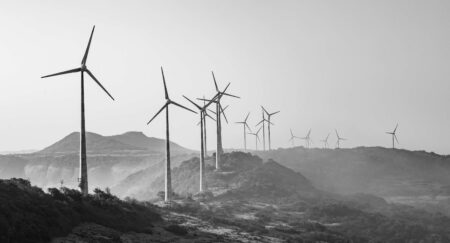Navigating the 2024 Political Landscape of Climate Change: Insights from the EU, Gulf Region, and China Amidst Global Policy Gridlock.
In 2024, as the world grapples with the pressing realities of climate change, the political landscape surrounding this critical issue has become increasingly complex. From the corridors of power in the European Union to the oil-rich nations of the Gulf region and the industrial powerhouse of China, policymakers face a daunting challenge: navigating a global policy gridlock that threatens to undermine efforts to address the climate crisis. Against this backdrop, understanding the dynamics at play within these key regions is paramount.
In this article, we delve into the intricate political dynamics shaping climate policy in 2024, shedding light on the approaches taken by the EU, the Gulf region, and China, and exploring the obstacles they face in forging meaningful solutions. Through a comprehensive analysis, we uncover the nuances of political decision-making, providing valuable insights into the ongoing struggle to confront one of the defining challenges of our time.
Scientific Insights: Understanding the Climate System
At the heart of the climate change discourse lies scientific inquiry. Decades of research have elucidated the mechanisms driving global warming, revealing the intricate interplay between greenhouse gas emissions, solar radiation, atmospheric composition, and oceanic currents. The consensus among climate scientists is unequivocal: human activities, primarily the combustion of fossil fuels and deforestation, are the principal drivers of contemporary climate change.
Recent scientific studies have underscored the urgency of addressing climate change. Reports from the Intergovernmental Panel on Climate Change (IPCC) paint a sobering picture, warning of catastrophic consequences if swift and decisive action is not taken. Rising sea levels, intensified storms, dwindling freshwater resources, and disruptions to agricultural systems threaten the fabric of human civilization and the stability of ecosystems worldwide.

Advancements in climate modelling have enhanced our understanding of future climate scenarios, enabling policymakers to formulate evidence-based strategies for mitigation and adaptation. However, uncertainty persists, particularly regarding the intricacies of feedback loops, regional impacts, and the potential for abrupt changes in the Earth’s climate system.
Key Statistical Insights: Understanding the Current Climate Change Landscape
As of the latest available data, the current situation on climate change presents a concerning picture, marked by several key indicators of environmental degradation and climate disruption.
- Global Temperature Rise: According to NASA’s Goddard Institute for Space Studies (GISS), the global average temperature has risen by approximately 1.18 degrees Celsius (2.12 degrees Fahrenheit) since the late 19th century. The past decade (2011-2020) was the warmest on record globally, with each successive decade since the 1980s being warmer than the previous one.
- Arctic Sea Ice Decline: The extent of Arctic sea ice has been declining at a rapid pace. Data from the National Snow and Ice Data Center (NSIDC) shows that the Arctic sea ice extent in September, typically the month with the lowest ice extent, has decreased by about 13.1% per decade since 1979. This decline in sea ice coverage has significant implications for Arctic ecosystems, indigenous communities, and global climate patterns.
- Antarctic Ice Loss: Antarctica is also experiencing significant ice loss, particularly from its vulnerable West Antarctic Ice Sheet. According to a study published in the journal Nature, Antarctica lost an estimated 219 billion metric tons of ice per year between 2012 and 2017, contributing to global sea level rise.
- Sea Level Rise: Sea levels have been rising at an accelerating rate due to the combined effects of thermal expansion of seawater and the melting of land-based ice. The Intergovernmental Panel on Climate Change (IPCC) reports that global sea levels rose by about 15 centimeters (6 inches) during the 20th century. Since the early 1990s, the rate of sea level rise has increased to approximately 3.3 millimeters per year, with some regions experiencing even higher rates of rise.
- Ozone Depletion: While efforts to address ozone depletion have led to significant progress, particularly with the implementation of the Montreal Protocol, which phased out the production and use of ozone-depleting substances (ODS), challenges remain. According to the World Meteorological Organization (WMO), the ozone layer over the Antarctic region continues to exhibit seasonal ozone depletion, although the size and severity of the ozone hole vary from year to year.
These statistical data points underscore the urgency of addressing climate change and its associated impacts. From rising temperatures and melting ice to sea level rise and ozone depletion, the evidence is clear: human activities are driving significant changes to the Earth’s climate system, with far-reaching consequences for ecosystems, communities, and economies worldwide. Bold and concerted action is needed to mitigate these impacts and build a more sustainable and resilient future.
Political Dynamics: Navigating Policy Gridlock
While the scientific consensus on climate change is robust, political responses have been marred by inertia, gridlock, and ideological divides. The global nature of the crisis necessitates coordinated action across national borders, yet international efforts, such as the Paris Agreement, have faltered amid geopolitical tensions and wavering commitments.
In the United States, the partisan divide over climate change remains stark. While the Biden administration has signaled a renewed commitment to climate action, pledging ambitious emissions reduction targets and investments in renewable energy, opposition from fossil fuel interests and skepticism among conservative lawmakers pose formidable obstacles. The recent failure to pass comprehensive climate legislation highlights the entrenched nature of the political impasse.
Meanwhile, the European Union (EU) has emerged as a leader in climate policy, spearheading ambitious initiatives to reduce emissions and transition to renewable energy sources. The EU’s Green Deal, a sweeping set of policy measures aimed at achieving climate neutrality by 2050, has garnered international acclaim. However, political challenges persist within the EU, as member states grapple with differing priorities, economic constraints, and competing interests.
In the Gulf region, home to some of the world’s largest oil-producing nations, the political landscape surrounding climate change is fraught with tensions. While countries like Saudi Arabia and the United Arab Emirates have made strides in diversifying their economies and investing in renewable energy, their continued dependence on fossil fuels presents a formidable barrier to meaningful emissions reductions. Political debates within the Gulf Cooperation Council (GCC) are often characterized by a delicate balancing act between economic imperatives and environmental concerns.
China, as the world’s largest emitter of greenhouse gases, occupies a central role in the global climate change discourse. While the Chinese government has made commitments to peak carbon emissions by 2030 and achieve carbon neutrality by 2060, the political landscape is rife with challenges. Balancing economic growth, energy security, and environmental sustainability remains a delicate endeavor for Chinese policymakers. Moreover, geopolitical tensions, particularly with the United States, have complicated international cooperation on climate issues, undermining efforts to forge consensus and implement effective policies.
In each of these regions, the political dynamics surrounding climate change reflect a complex interplay of competing interests, economic realities, and ideological positions. Overcoming political gridlock and forging meaningful solutions will require visionary leadership, diplomatic finesse, and a commitment to collective action on a global scale.
Economic Considerations: Balancing Growth and Sustainability
The economic dimensions of climate change are equally complex, intertwining questions of energy policy, technological innovation, and global trade. Transitioning to a low-carbon economy entails profound structural changes, with potential ramifications for employment, industry competitiveness, and social equity.
While some argue that addressing climate change presents unprecedented economic opportunities, such as the growth of renewable energy sectors and green infrastructure investments, others warn of short-term costs and disruptions. Industries reliant on fossil fuels, such as coal mining and oil extraction, face existential threats, prompting resistance from vested interests and concerns about job losses in affected communities.
Moreover, the global nature of climate change necessitates collective action, raising questions of fairness and free-riding. Nations reluctant to bear the costs of emissions reduction may exploit competitive advantages derived from lax environmental regulations, undermining efforts to achieve meaningful emissions reductions on a global scale.
Controversies and Challenges: Navigating Uncertainty
Amidst the cacophony of voices weighing in on climate change, controversies abound, ranging from the validity of climate science to the efficacy of proposed solutions. Skepticism, denialism, and misinformation continue to proliferate, fueled by vested interests, ideological biases, and cognitive dissonance.
The role of uncertainty in climate projections remains a subject of debate, with critics seizing upon discrepancies in models and data to sow doubt about the severity of the crisis. Climate scientists, meanwhile, stress the need for robust risk assessment and precautionary measures in the face of potentially catastrophic outcomes.

In echoing the sentiments of renowned climate scientist at ETH Zurich Prof. Sonia I. Seneviratne, it becomes increasingly evident that even incremental rises in global temperatures carry profound implications for our planet’s future. As highlighted in the IPCC Special Report on Global Warming of 1.5°C, the urgency to limit warming to 1.5°C cannot be overstated. However, Prof. Seneviratne emphasizes that fixating on timelines for potential catastrophe may overshadow a more critical question: how much climate change can still be deemed safe? This shift in focus encourages a nuanced discussion among climate scientists and stakeholders alike, prompting us to consider the broader implications of our actions and the thresholds beyond which irreversible damage may occur. It underscores the imperative for decisive action and underscores the complexity of navigating the fine line between ambition and feasibility in climate policy and action.
Ethical considerations also loom large in the climate change discourse. Questions of intergenerational justice, environmental stewardship, and the rights of marginalized communities underscore the moral imperative of climate action. Calls for climate reparations, indigenous land rights, and environmental justice have gained traction, challenging traditional notions of economic development and resource allocation.
Media Coverage: A Critical Void
In recent months, the urgency of the climate crisis has been overshadowed by other global events, notably the conflict in Ukraine and the escalation of tensions in Gaza. The media spotlight, once trained on climate change, has shifted, leaving a critical void in public discourse. As headlines are dominated by geopolitical strife and humanitarian crises, the existential threat posed by climate change risks being relegated to the sidelines.
The lack of media coverage on climate change is a troubling trend, exacerbating public apathy and hindering efforts to mobilize action. While conflicts and humanitarian emergencies demand attention, the long-term consequences of climate change are no less dire. By neglecting to prioritize climate reporting, media outlets risk abdicating their responsibility to inform and educate the public on one of the most pressing challenges of our time.
Charting a Path Forward: Toward Climate Resilience and Sustainability
As the stakes of the climate change crisis continue to escalate, the imperative for collective action grows ever more urgent. Addressing climate change requires a holistic approach, integrating scientific insights, political cooperation, economic innovation, and robust media coverage.
Investments in renewable energy, sustainable agriculture, and green infrastructure are essential for reducing greenhouse gas emissions and building climate resilience. Policymakers must prioritize the transition to a low-carbon economy, while safeguarding the interests of vulnerable communities and workers affected by economic restructuring.
International cooperation is paramount, necessitating diplomatic efforts to overcome political gridlock and forge equitable agreements. Wealthy nations must fulfill their obligations to support climate adaptation and mitigation efforts in developing countries, recognizing the interconnectedness of global environmental challenges.
Ultimately, confronting climate change demands a paradigm shift in our values, priorities, and behaviors. It requires a reimagining of the human-nature relationship, grounded in principles of stewardship, equity, and solidarity. Only through collective action, informed by rigorous scientific inquiry and amplified by responsible media coverage, can we hope to mitigate the worst impacts of climate change and secure a sustainable future for generations to come.






